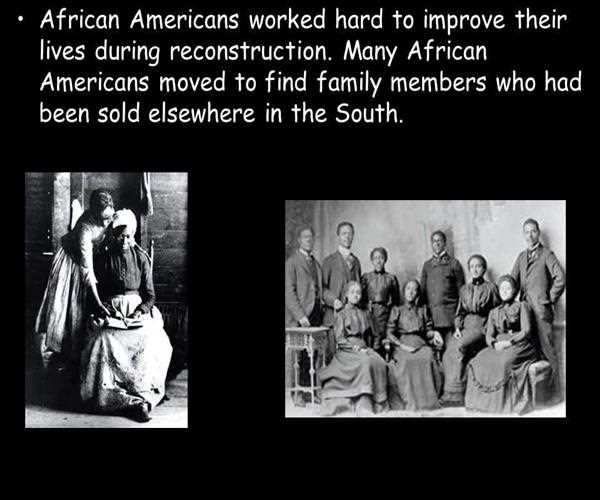The Union triumph in the Civil War in 1865 may have given exactly 4 million slaves their opportunity, yet the way toward modifying the South amid the Reconstruction time frame (1865-1877) presented another arrangement of critical difficulties. In under 10 years, nonetheless, reactionary forces– including the Ku Klux Klan– would turn around the progressions fashioned by Radical Reconstruction in a fierce backfire that re-established racial oppression in the South.
Liberation and Reconstruction
To do as such, he dreaded, would drive the fringe slave states still faithful to the Union into the Confederacy and outrage more preservationist northerners. By the mid year of 1862, be that as it may, the slaves themselves had pushed the issue, heading by the thousands to the Union lines as Lincoln's troops walked through the South. Their activities exposed one of the most grounded legends fundamental Southern commitment to the "impossible to miss institution"– that numerous slaves were really content in bondage– and persuaded Lincoln that liberation had turned into a political and military need. Because of Lincoln's Emancipation Proclamation, which liberated in excess of 3 million slaves in the Confederate states by January 1, 1863, blacks enrolled in the Union Army in substantial numbers, achieving somewhere in the range of 180,000 by war's end.
Liberation changed the stakes of the Civil War, guaranteeing that a Union triumph would mean expansive scale social upset in the South. It was still exceptionally vague, nonetheless, what frame this upheaval would take. Throughout the following quite a while, Lincoln considered thoughts regarding how to welcome the crushed South once more into the Union, however as the war attracted to a nearby in mid 1865 despite everything he had no unmistakable arrangement. He was killed three days after the fact, in any case, and it would tumble to his successor to set up plans for Reconstruction.

Presidential Reconstruction
Aside from being required to maintain the cancelation of subjugation (in consistence with the thirteenth Amendment to the Constitution), swear dependability to the Union and pay off war obligation, southern state governments were without given rule to remake themselves.
Because of Johnson's mercy, numerous southern states in 1865 and 1866 effectively authorized a progression of laws known as the "dark codes," which were intended to confine liberated blacks' action and guarantee their accessibility as a work drive. In mid 1866, Congress passed the Freedmen's Bureau and Civil Rights Bills and sent them to Johnson for his mark. The main bill broadened the life of the authority, initially settled as a brief association accused of helping exiles and liberated slaves, while the second characterized all people conceived in the United States as national natives who were to appreciate correspondence under the steady gaze of the law. After Johnson vetoed the bills– causing a changeless break in his association with Congress that would come full circle in his arraignment in 1868– the Civil Rights Act turned into the principal significant bill to end up law over presidential veto.
Radical Reconstruction
The law likewise required southern states to endorse the fourteenth Amendment, which expanded the meaning of citizenship, conceding "break even with insurance" of the Constitution to previous slaves, previously they could re-join the Union. In February 1869, Congress affirmed the fifteenth Amendment (received in 1870), which ensured that a resident's entitlement to vote would not be denied "because of race, shading, or past state of subjugation."